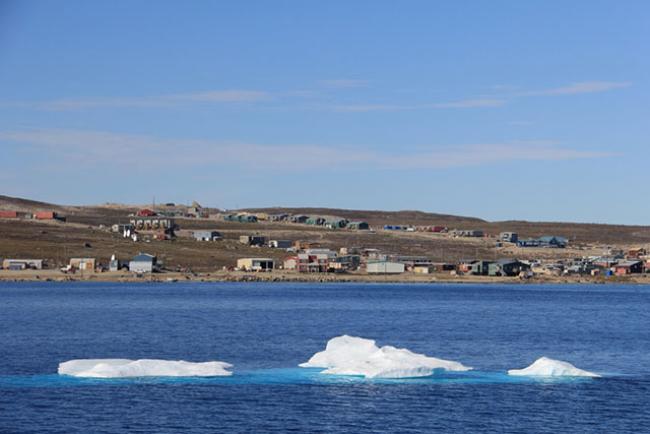Articles Menu

On November 30, 2016, a case will come before the Canadian Supreme Court that will have momentous and potentially global implications. In April 2016 the Canadian Supreme Court, which hears only 5 percent of referred cases, agreed to judge an appeal brought by the Inuit community of Clyde River, Nunavut, against a five-year plan to carry out seismic blasting in Baffin Bay. The people who live in Clyde River, situated on Baffin Island, use the waters and ice of the Bay for hunting, a central component of their culture and primary source of food.
With Greenpeace helping to cover legal costs, this is the first time the Supreme Court has ever taken up a case from the autonomous Inuit territory of Nunavut in the 17 years since it split from the Northwest Territories. To bolster the legal campaign by amplifying the voices of Inuit activists and to respond to Inuit requests for alternatives to fossil fuels, Greenpeace sailed their ship Arctic Sunrise to the Arctic in August. At the formal invitation of the Hamlet Council, Greenpeace activists -- including British actor Emma Thompson -- were allowed to sail the Arctic Sunrise to deliver solar panels to Clyde River in response to the community's stated desire for alternatives to fossil fuel-driven development and the expense and pollution of diesel. For as Inuit campaigner, Nobel Prize Nominee and author Sheila Watt-Cloutier has legitimately asked in her book The Right to be Cold:
With the sea ice and permafrost of the Arctic rapidly melting, these mining operations are becoming more and more feasible and potentially profitable.... It's understandable, given the poverty, lack of food security and increasing difficulty of maintaining our traditional hunting culture, that the lure of resource-related jobs would be so great ... [But] all over the world, Indigenous peoples have suffered the devastating effects of these industries on their lands.... Given the wealth of evidence about the dangers of the extraction industries, we Inuit should be asking ourselves, "Why would it be any different for us? How will this industry, which is so counter to our own culture of stewardship of the land, be any different in the Arctic than it has been in other parts of the world?"
. . . . . .
[Top Photo: In the hamlet of 1,100 people nestled below the mountains in Clyde River, residents have been fighting seismic blasting in their hunting grounds of Baffin Bay. (Photo: Chris Williams) More photos - read the complete article - Editor]